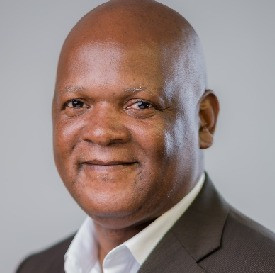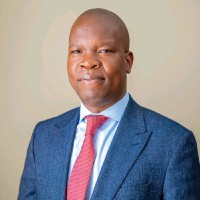
My article last week, about experience being the worst teacher triggered an interesting debate with my younger brother who felt that I was suggesting that it was right for a man to do his best to take care of his family even if it was the kind of work that was clandestine or not above board. I had to go back and check if my article had made such suggestions.
The article described without judgment, the actions of a man whose experience had put him in a position of survival and where his survival instinct as opposed to his sense of discretion, directed his thinking, feeling and action.
Experience can do that and leave one at that level of consciousness where, as far as they are concerned, they have to take care of their family by any means necessary. The notion of the sense of right or wrong does not come up because what is important to them is that they have to survive together with their immediate family.
What is interesting about that kind of experience is that it has circles of collective identity starting with family with a deep sense of oneness most of the time. This circle can widen to accommodate other connections such as extended family with kids and wife coming first as if they were self. These form the nucleus of the circle and through interaction, sink into the heart of the individual, in the process making the lines of separation blurred. This circle may expand to accommodate siblings and parents and so on and so on, going further for many to accommodate clans, villages, tribes, race and sometimes nationality.
The Indian mystic, Sadguru has this to say about this observation; ‘All evil comes from people whose idea of wellbeing only includes themselves, their own family, community, race, religion or nation.’ This hit my face like a wet fish when I first came across it because I had always assumed that it was good and noble to think family and take care of family by any means necessary.
Sadguru, a subscriber to the notion of the oneness of the human race sees beyond those lines and views this clinginess to some people as dysfunctional and the cause of most human selfishness, conflict, and suffering.
What this identification with some people as important does is that it indirectly reads others as not important, to the extent that if one has to choose who should live and who should die, they would, without blinking, choose their family to live and the other person to die. That looks ok, right?
Sadguru does not agree and when one thinks deeply about it, they will understand that while closeness with family is instinctive and looks right and good, human beings would do better to be human beings of discretion and try and make the world a better place for the human race so that there is no time when they have to make that choice of having one die and the other live.
- Communities of experience in workplace
Keep Reading
Why should that seemingly good sense of self and others be viewed as wrong? I think because, as Sadguru says, all evil comes from people who limit life like that, where they can choose the death of others and be selfish about their own life and that of family, race, religion and sometimes nation.
Coming back to the workplace, an individual comes to an organisation with that high sense of, “My family comes first and if push comes to shove, I will put family first and not the company”. This is the source of most of the failure to build working communities in the workplace and this can be traced back to experience.
The whole world is giving humanity that kind of experience where, when resources are not enough one has to think selfishly about who should survive and who should die. People who steal from their companies do so, driven by that belief and value system. As far as they are concerned, it is the right thing to do and as long as there is no new experience crafted by the company with understanding, they will just survive this way and see nothing wrong with it.
An employee with behavioural challenges based on their experience, fears, beliefs, values, thoughts, feelings, and actions, comes to work to push life within that frame of mind and will only shift their behaviour if there is a complete overhaul of that behavioural structure that changes, not just their actions, but their belief and value system as well.
If an organisation does not go that route, (and most organisations do not go that route), then they need to craft a strict code of conduct because you can be certain that the workforce will behave instinctively, think selfishly about themselves, their family and other closer identities and act accordingly.
Organisations are actually the first to do that and the workforce learns from the best. Leaders will show the employee how to behave and they do exactly that because after all, experience had taught them that without sitting them down. They just learnt as they lived and went out there to the world to do what they had learnt.
Informed and learned behavioural change interventions can disrupt this identity and widen an employee’s identity and belonging horizons to include more people in their circles leading to more fairness and progress. This is real civilisation and ubuntu because ubuntu sees all abantu (humans) as humans and deserving good, the employers and employee included. Ubuntu is not what we see in the movie Titanic, where a certain class of people have a right not to drown than others. It is not what we saw recently when Ukraine refugees where accommodated according to race and religion in Poland. That is closer to animalism than anything where fear makes a human being think that other human beings are less and can die.
An employer whose mandate is more than just business, or rather, whose business is a contribution to the human search for meaning and wellbeing not just for a few but for all, will invest in creating a new experience for their workforce that is, by its nature cosmopolitan and a space of communities of experience.
In the Digital Handbook of the History of Experience, Ville Kivimaki and others write about Communities of Experience, https://sites.tuni.fi/hexhandbook/theory/communities-of-experience/. A very interesting read.
With that understanding of the instinctive inclination towards those with the same experience as one, it is important for a workplace to create new experience and have their workforce experience goodness with the rest of their colleagues. This now is building a workplace community that can increase productivity in its entirety.
If this is not the route we take in the workplace now and the future workplaces, then we will need to make more Codes of Conduct and be ready to use most of our time conducting hearings, firing and hiring new ones to fire them again and again.
*Bhekilizwe Bernard Ndlovu’s training is in human resources training, development and transformation, behavioural change, applied drama, personal mastery, and mental fitness. He works for a Zimbabwean company as human capital executive, while also doing a PhD with Wits University where he looks at violent strikes in the South African workplace as a researcher. Ndlovu worked as a human resources manager for several blue-chip companies in Zimbabwe and still takes keen interest in the affairs of people and performance management. He can be contacted on [email protected]











